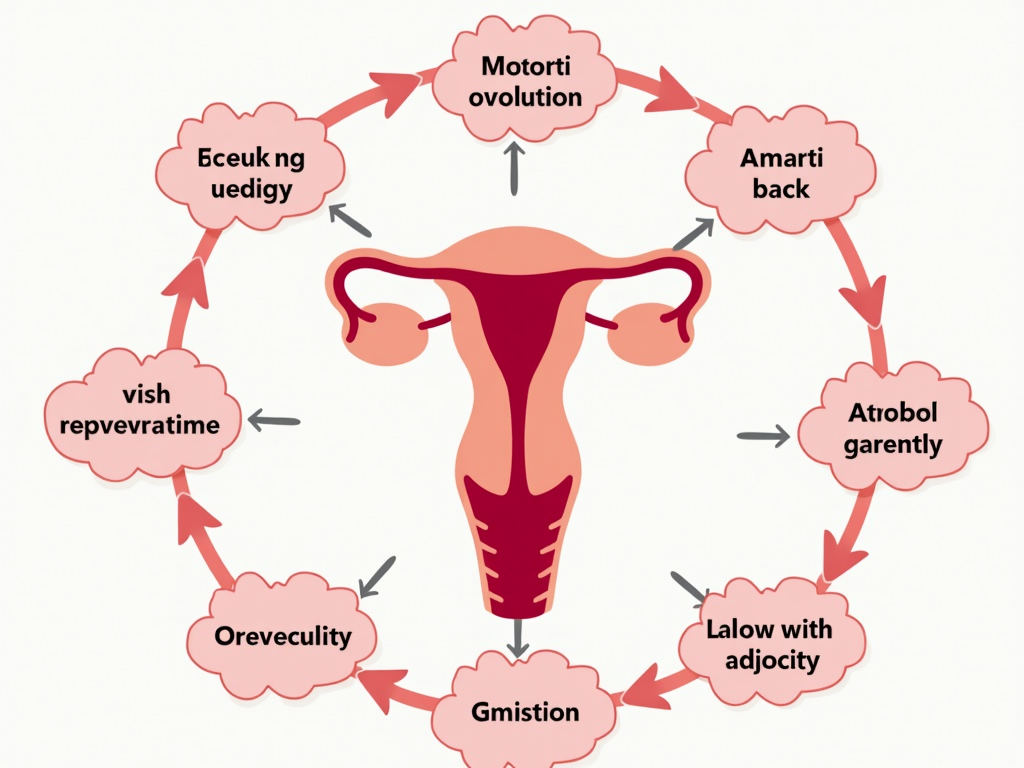Understanding Hormonal Health for Women: A Comprehensive Guide
March 29, 2025, 11:10 a.m.
Overview: Hormonal health is crucial for women's overall well-being. Hormones regulate many bodily functions, including the menstrual cycle, fertility, and mood. When hormones are imbalanced, it can lead to various health issues, including ovulation disorders, which are a common cause of female infertility. In this article, we'll explore the importance of hormonal health, common causes of ovulation disorders, and how they can affect fertility. We'll also provide insights and tips for managing hormonal imbalances and improving overall health.
What is Hormonal Health?
Hormonal health refers to the balance of hormones in the body. Hormones are chemical messengers that regulate many bodily functions, including the menstrual cycle, fertility, and mood. When hormones are imbalanced, it can lead to various health issues, such as irregular periods, weight gain, and mood swings. For women, hormonal health is particularly important because it affects fertility and the ability to conceive.
Common Causes of Ovulation Disorders
One common hormonal issue that affects women is ovulation disorders. Ovulation is the process by which the ovary releases an egg each month. When ovulation is disrupted, it can lead to infertility. There are several common causes of ovulation disorders, including polycystic ovary syndrome (PCOS), thyroid disorders, and stress.
- Polycystic Ovary Syndrome (PCOS): A hormonal disorder that affects the ovaries, causing irregular periods, weight gain, and infertility.
- Thyroid Disorders: Conditions like hypothyroidism or hyperthyroidism can disrupt ovulation.
- Stress: High stress levels can interfere with hormonal balance, leading to ovulation disorders.
How Ovulation Disorders Affect Fertility
Ovulation disorders can make it difficult for women to conceive. When ovulation is disrupted, the egg may not be released, or it may not be released at the right time. This can make it difficult for the egg to be fertilized by sperm. In some cases, ovulation disorders can also affect the quality of the egg, making it less likely to result in a successful pregnancy. According to the American Society for Reproductive Medicine, ovulation disorders are the most common cause of female infertility, accounting for about 25% of cases.

Managing Hormonal Imbalances
There are several things women can do to manage hormonal imbalances and improve their fertility: - Maintain a Healthy Weight: Excess weight can disrupt hormonal balance. - Eat a Balanced Diet: Include plenty of fruits, vegetables, and whole grains. - Exercise Regularly: Helps regulate hormones and improves overall health. - Manage Stress: Techniques like meditation or yoga can be beneficial.

In some cases, medication or other treatments may be necessary. Common treatments for ovulation disorders include medication to stimulate ovulation, such as clomiphene citrate or letrozole. Assisted reproductive technologies, like in vitro fertilization (IVF), may also be an option.
Seeking Medical Help
If you're experiencing symptoms of hormonal imbalances, such as irregular periods, weight gain, or mood swings, it's important to talk to your doctor. They can help determine the cause of your symptoms and recommend appropriate treatment. When talking to your doctor, be sure to mention any symptoms you're experiencing, as well as any changes in your menstrual cycle or fertility. Keeping a record of your symptoms and menstrual cycle can also be helpful.

Personal Insights
As someone who has struggled with hormonal imbalances and ovulation disorders, I know how frustrating it can be. It can feel like your body is working against you, and it can be difficult to know what to do. But I've learned that taking care of my overall health, including my diet, exercise, and stress levels, can make a big difference. It's also important to be patient and persistent, and to work closely with your doctor to find the right treatment for you.
Connecting with others who are going through similar experiences can also be incredibly helpful. There are many online communities and support groups for women with hormonal imbalances and infertility. These can provide valuable information, support, and encouragement.

Additional Tips for Hormonal Health
- Track Your Menstrual Cycle: Use apps or tools to identify patterns and potential issues.
- Prioritize Sleep: Aim for 7-9 hours per night to support hormone regulation.
- Consider Supplements: Vitamin D, omega-3 fatty acids, and magnesium may help, but consult your doctor first.
- Practice Self-Care: Make time for activities that bring you joy and relaxation.
Conclusion
Understanding hormonal health is crucial for women, especially when it comes to fertility. By taking steps to manage hormonal imbalances and seeking appropriate treatment, women can improve their chances of conceiving and overall health. Remember, you're not alone in this journey, and there are many resources and support systems available to help you.